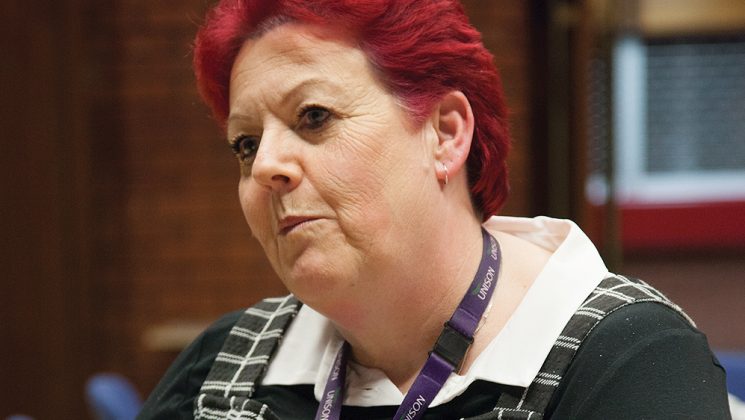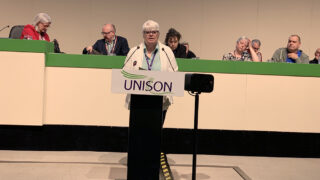When Laney Walsh was a young married mother she had panic attacks, shoulder pain and breathlessness. She would look forward to going to bed, but when she got there, she wouldn’t be able to sleep.
Laney knew she should feel lucky. She had a husband she loved, three children and a home, but she felt as though a cloud hung over her, engulfing her and sucking every ounce of enjoyment and pleasure from her life.
She visited the doctor regularly, but her symptoms went undiagnosed. She believed she was dying. And she thought she deserved to.
One day, she saw a new doctor and, as she sat in his surgery, noticed a book on the shelf behind him. The title was Depression. Laney didn’t mention the book, but after the appointment she got a piece of paper and began to write down everything she felt: her physical pain, her feelings and her thoughts.
“It became the most dog-eared piece of paper I have ever used. It was scrabbled up where I had gripped it so tight in my hand in my pocket, it was hardly legible.”
Two weeks later, Laney had an appointment with the same doctor. As she stood outside she was so nervous she felt sick.
Her hands were clammy and she was so short of breath that she considered not going in.
Finally convincing herself to do so, she entered the room and sat down. The doctor asked what he could do for her – and she began to cry.
She passed the doctor her piece of paper. He passed her a box of tissues.
That was the moment that her recovery began.
Once Laney had recovered from her depression, she made a vow to herself. She would never allow someone to go through what she had been through.
She decided that she would not let someone feel like they didn’t deserve to live or want to cut themselves to make pain visible.
She would combat the fear that telling someone how they felt wasn’t possible because media so often associates mental illness with violence.
Fast forward a few decades and Laney is one of UNISON’s most extraordinary activists. She has kept her vow and works tirelessly to combat the stigma around depression.
UNISON caught up with Laney on National Time to Talk day, at an event she had organised for her colleagues in Redditch.
Time to Talk day is run by charity Time to Change, which works to combat stigma around mental health. This year was the fourth national Time to Talk day, but for Laney, it was the 44th mental health event that she has organised.
The room in Redditch town hall is full of stands and stalls. There are taster hand massages, guerilla keep fit sessions, a finance expert to help with money worries, health trainers doing health MOTs, tai chi classes, a neuro-linguistic programmer trainer to offer support and relaxation. And of course, Laney herself.
With bright red hair and a big smile Laney gets hugged by many of the people who enter the room. It’s the result of her hard work and determination to help her colleagues.
Laney is passionately dedicated to promoting the message that talking about mental illness helps people get through it. To that end, she trained in neuro linguistic programming in 2015, and became a master practitioner in 2016.
She also worked to get both Redditch borough council and Bromsgrove district council to sign the Time to Talk employer pledge – a promise by employers to commit to changing attitudes towards mental health and to support employees with mental health problems.
She stood up and gave speeches about her own experience and gained support from councillors of all political persuasion. Now they have a Time to Talk working group chaired by the council’s deputy chief executive, and Laney’s UNISON branch works with the council to make sure the pledge is fulfilled.
Find out more about UNISON’s Mental Health Matters campaign
Laney and the branch have been recognised with a regional UNISON health and safety award for their work on mental health in 2014, and they were highly commended in the regional TUC awards.
While noting that the work has had an impact on sickness rates – “a 20% reduction over the years” – Laney still remains modest about her achievements. It isn’t until we talk to Wayne Brandrick, a colleague, that we find out the real impact.
Wayne talked to UNISON about his life before he became involved with Time to Talk.
“Even though I’ve got children, and that was all I ever wanted in life, I was sick of fighting. I’d had enough. I made another attempt on my life.”
But since Wayne has been involved with Laney and Time to Talk, he has been recovering. “It was like, these people really understand me,” he says. “They saved my life.



